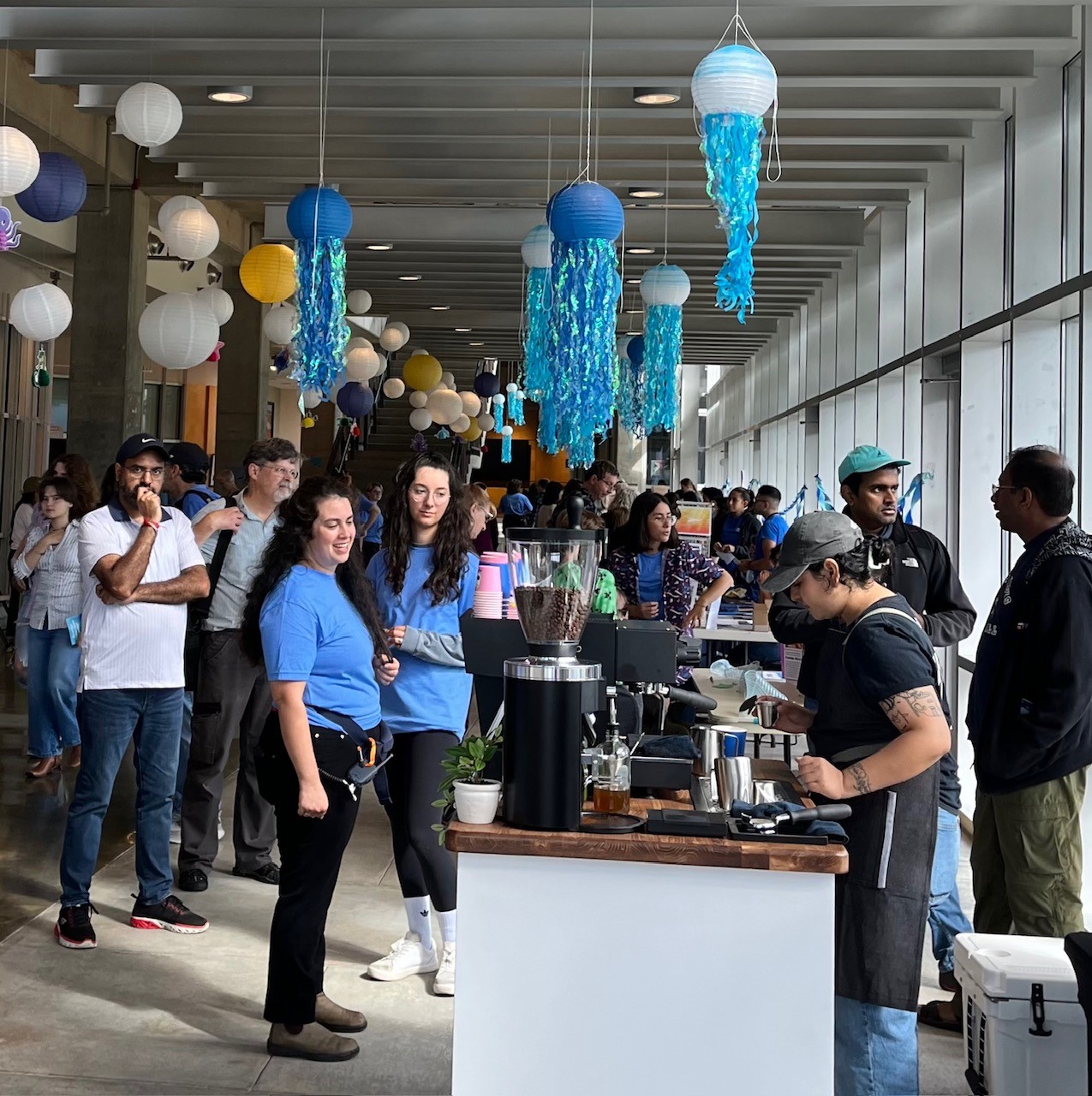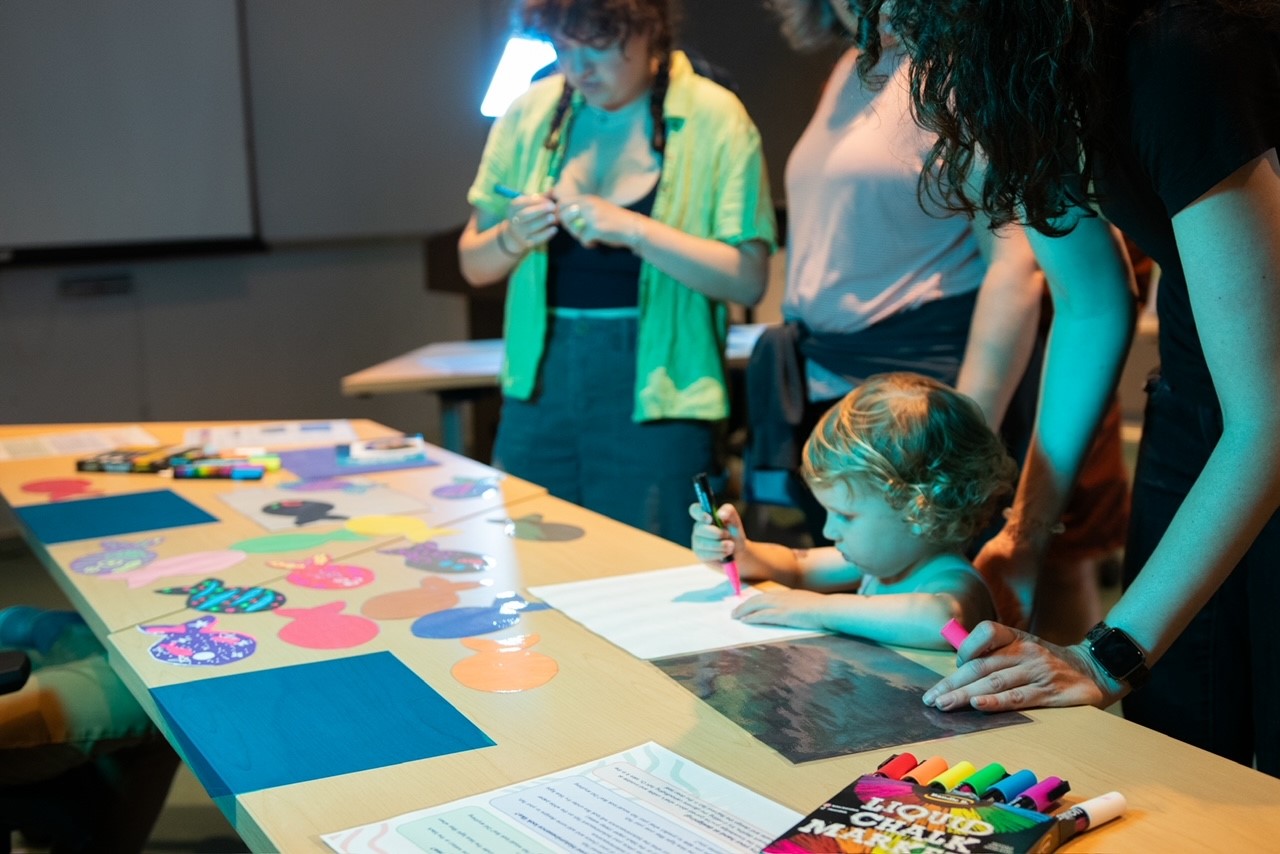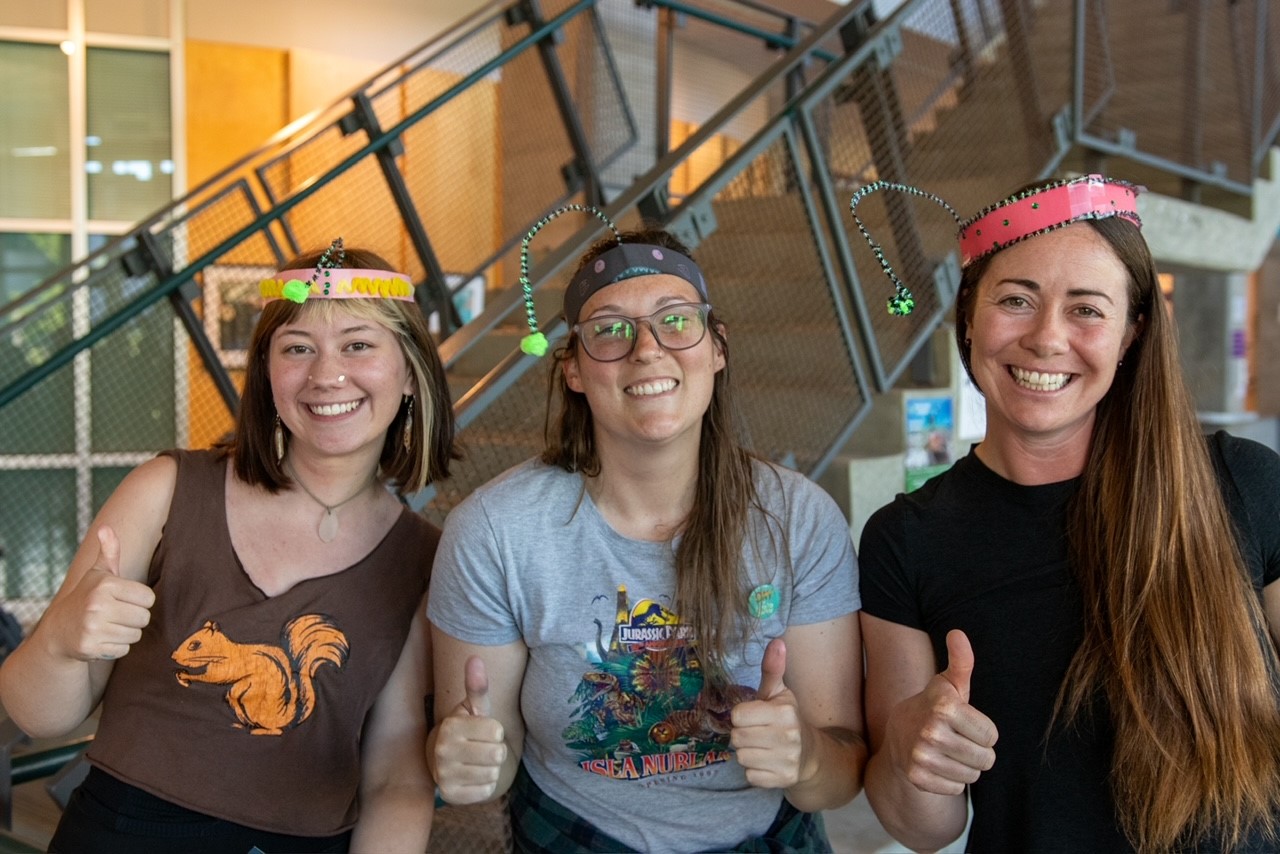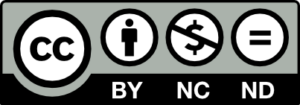Ocean enthusiasts and random passersby alike came together in Seattle this past August to explore and celebrate their connection to the deep sea.
Two years in the making, the Deep Sea Conservation Festival started as my idea for a free community event centered around the deep sea and its relevance in our daily lives. After months of work, it blossomed into a massive collective effort with the support of dozens of people and complete with speakers, booths, food, and musical performances.

Starting this process as a 16-year-old with no formal deep sea or scientific experience, I had no idea my dream for this event would find so much support and success. I envisioned this festival just a few hours after randomly attending a National Geographic Live talk about the deep ocean by marine biologist Diva Amon. There I heard for the first time about this remarkable, crucial, and threatened habitat. Somehow this one inspiring spark was enough to ignite my love of the deep sea and motivate me to share this passion with my broader community, setting me on a trajectory that would change my entire high school experience.
Now, as I enter my senior year of high school, I find it remarkable that one hour, one piece of information — bundled with excitement — could have had such a profound influence on me. It makes me wonder if this event allowed me to pay that forward.
A Deep Realization
The Deep Sea Conservation Festival was my Girl Scout Gold Award Project, the highest award available to Scouts and earned for completing a “take action” project that addresses the root cause of an issue they perceive in their community.
At the time the inspiration for this festival came to me, I wasn’t a total stranger to ocean conservation. I had grown up along the water and had served as a youth volunteer at the Seattle Aquarium for more than a year. In that role I’d begun to track how conservation messages diffused through more general audiences. I found that facilitating connection is a crucial part of inspiring preservation.

Even with this foundation, as I listened to Diva speak, I was shocked by my own ignorance about the marvels of the deep sea and the impending doom facing it. At the same time, my feelings of inadequacy helped me realize that if I’d never explored my connection with the ocean beyond the surface level, then the members of my community who were also juggling other passions — like those I consistently talked to at the aquarium — wouldn’t have their attention turned to the deep sea either.
At first look, the deep sea and my local community appeared to be two separate entities. But the more I learned, the more I began to poke holes in this “out of sight means out of relevance” worldview. That’s why I centered my Gold Award project on addressing the lack of awareness surrounding how what we do impacts the deep sea — and vice versa.
Swimming Together
Throughout the process of organizing this event, I met so many incredibly kind and generous people, from policy experts to attendees and from conservation advocates to community organizers. Countless individuals and organizations dedicated their time and expertise to show up for me and this common dream of deep-sea conservation.
Bolstered by their support, this festival grew from an amorphous blob of inspiration and fuzzy mental images into a detailed and effective plan to enact change.
The first event of its kind, the Deep Sea Conservation Festival invited people from around the community to show up and celebrate the vibrant and unexplored corner of our planet that is the deep ocean.
On the day of the festival, more than 500 people from around northwest Washington came to explore their relationship with the deep sea. The Seattle clouds parted, and under a gleaming sun people of all ages and backgrounds engaged with the deep ocean and their role in its preservation. After attendees got their Deep Sea Passport upon entry, they moved between booths, speaker sessions, and activities; designed their own deep-sea fish; discovered counterillumination; and talked with volunteers at tables covering subjects such as deep-sea mining and current deep-sea policies. The combination of basic activities — like creating personalized anglerfish hats — and more intensive opportunities, like learning about seawater electrolysis, enabled people of all backgrounds and interest levels to explore their relationship with the deep.

Through the experience of organizing this event, I was able to watch my community solidify behind me and the ocean in a massive way. I felt a new energy and excitement about the deep sea, particularly as I spent the day of the festival talking to so many passionate attendees who were enthusiastically engaged in learning and dedicating themselves to taking action.
And act they did: During the event, 176 people emailed Washington state senators encouraging them to support a national deep-sea mining moratorium, our target action item for the festival. In this way, the project went beyond fostering individual connections to the deep ocean to encompass advocating for political change as well.
From Interest to Action
To gauge the effectiveness of the event, we surveyed as many of the participants as possible — both as they arrived and after they left the festival.
While walking into the event, only a little more than 40% of 140 presurvey takers agreed that ocean conservation felt accessible to them. Comparatively, upon leaving the festival, nearly 70% of attendees reported the same.
This data shows two main trends: one, that marine science and environmental preservation continue to be daunting fields to break into; and two, that by engaging in informal ocean education, festival attendees were able to better see themselves as a part of the collective effort to protect the oceans.
These results echo back to a lesson I first learned while volunteering at Seattle Aquarium: I discovered that many people were eager to help protect our planet, but their willingness to accept the research laid out in front of them didn’t transfer to their ability to actively parse out and interpret data on their own. Marine science remains inaccessible for many reasons, particularly because it takes a significant amount of time and knowledge to interact with and because many people assume they need a degree to get involved.
It’s consistently evident that so many people care about conservation. But people still need help crossing the many time and educational barriers that prevent them from effectively participating in the conversation. The festival proved that by making science and environmental preservation more accessible and attainable, we can effectively tap into a large and passionate force of potential changemakers.
After the festival, 90% of 60 postsurvey participants reported that they agreed or strongly agreed with this statement: “The Deep Sea Conservation Festival helped increase my understanding of the deep sea and the threats that it is facing.” Similarly, 76.7% of attendees agreed or strongly agreed with this statement: “My experience here has motivated me to become more involved in the world of deep sea/ocean research and conservation.”
It’s been amazing to see the impact of my vision and the efforts of my entire community to realize it. I’ve found myself incredibly motivated by how my event empowered my community and how large something like this could be scaled.
Since the event, I’ve found myself dreaming about how it could have looked if it had double its 500 attendees, or if it was adopted by a larger group and became something that could have a legacy larger than myself and my team. I’ve caught myself hoping that my work to organize this celebration of the deep sea has inspired other people to put in the effort to share their dreams, research, and missions with others and mobilize a broad range of communities to take action.

Previously in The Revelator:
As Deep-Seabed Mining Ramps Up, Scientists Race to Study the Environmental Effects
The post Bringing the Deep Sea to Seattle appeared first on The Revelator.